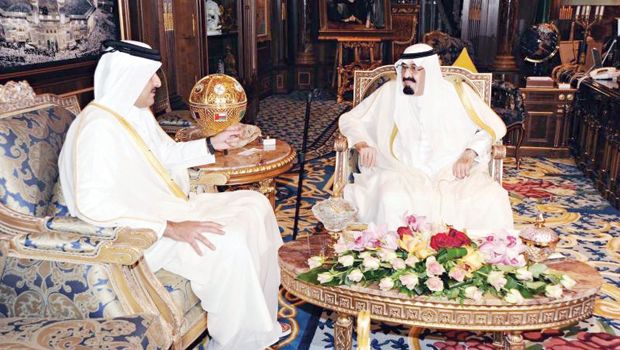
Riyadh, April 28: Custodian of the Two Holy Mosques King Abdullah received Qatari Crown Prince Sheikh Tamim bin Hamad Al-Thani at his palace in Riyadh yesterday.
The king and the Qatari crown prince discussed the current Islamic, Arab and international developments and reviewed ways to further boost bilateral cooperation between the two countries.
Sheikh Tamim also conveyed the greetings of the Emir of Qatar Sheikh Hamad bin Khalifa Al-Thani to the king. The king sent his greetings to the Qatari emir.
Crown Prince Naif, deputy premier and minister of interior, and Defense Minister Prince Salman, Foreign Minister Prince Saud Al-Faisal also attended the reception.
Riyadh Gov. Prince Sattam received Sheikh Tamim at the Riyadh Air Base earlier in the day.
Crown Prince Naif arranged a luncheon in honor of the visiting dignitary at the Conference Palace.
“My visit is in response to an invitation by Prince Naif and in line with the policy of strengthening mutual relations between the leaders of the two countries. I am confident that this will support and strengthen the brotherly relations and cooperation between our countries in various fields,” the Qatari crown prince said in a press statement shortly after his arrival, the Saudi Press Agency reported.






Comments
Add new comment